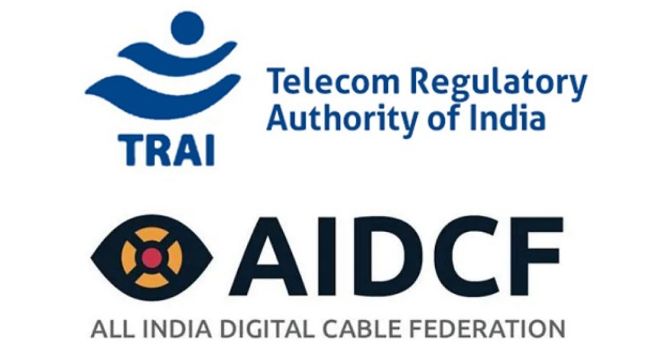The All India Digital Cable Federation (AIDCF), an apex body of MSOs, has said that the question of dominance and monopoly doesn’t exist in video distribution (TV channels) in India and, thus, broadcast economic regulator TRAI should refrain from any public consultation on market monopoly and such issues.
Pointing out that “Market Structure/ Competition in cable TV sector” (the TRAI consultation paper) does not hold merit in view of the “changed market and distribution structure”, the AIDCF has submitted that the regulator should actually step back from holding any public consultation on the said matter.
“We would like to state that the issue of market dominance by MSO does not really exist as there is not only competition within MSOs, but also with other players in the market like DTH, HITS, IPTV, Free Dish and OTT platforms. The services offered by the MSOs are completely substitutable by all the aforesaid players and effectively renders a perfectly competitive market. Accordingly, the current consultation paper should be closed and earlier recommendations should be withdrawn,” The MSO’s body has submitted in response to TRAI’s discussion paper on cable TV distribution market structure and market dominance.
The AIDCF has said in its submission that TRAI itself has rightly pointed out that since the implementation of DAS, the context and the structure of cable TV distribution has undergone a change and the sector has evolved to a formalised structure and there is enough competition in the market.
“Therefore in our view, the earlier recommendation on the ‘Market Structure/ Competition in cable TV sector’ does not hold merit now, in view of the changed market and distribution structure,” AIDCF further added.
The AIDCF submission has also drawn attention to the regulatory framework, pointing out that the Competition Commission of India (CCI) is adequate to “investigate into any and all forms of anti-competitive agreements/abuse of dominant position” and that the CCI has powers to impose heavy penalties and direct entities to discontinue their operations and/or any instance of abuse of dominant positions.
The Competition Act is a comprehensive legislation that deals with anti-competitive practises and lays down stringent policies for violation of the same. Importantly, the provisions of the Competition Act clearly state that it will override all other provisions contained in any law and that its provisions are in “addition to and not in derogation of any other law”, the MSOs’ body said.
“Thus, any restrictions that are proposed to be introduced to regulate anti-competitive activities in the broadcasting and cable sector would result in a conflicting jurisprudence or positions being developed. The CCI also has wide powers to not only regulate traditional mergers and acquisition activities, but also the acquisition of control, shares, voting rights or assets or any other instance of indirect control. Therefore, any parallel legislation imposing any form of restrictions/ market cap on MSOs/ LCOs —especially when the same is not called for in view of existence of perfect competition — will only act as an impediment for growth and add up to the confusion, expose the stakeholders concerned, to unnecessary litigations and judicial interventions,” the AIDCF said in its submission.
Highlighting that the TRAI itself has admitted there are 70.99 million DTH subscribers, 73 million MSO subscribers and 2.15 million of HITS subscribers, apart from those of IPTV services and 38 million Doordarshan FTA FreeDish subscribers, AIDCF submitted “presently there is ample competition amongst all the aforesaid players in the broadcasting sector”.
“…the sheer presence of a perfectly competitive market wherein the services of DPOs are perfectly substitutable not only from amongst the DPOs and platforms of FreeDish and unlicensed OTT players, but also inter-se within the same platform and service providers, any restrictive treatment in terms of market capping/ regulations is uncalled for and will be in utter defiance of the spirit of a competitive market and interests of the stakeholders, including liberty of the consumers to avail services of their desired service-provider,” the submission said.
AIDCF also said that cross-holding restrictions are already in place in terms of the licensing framework of DTH and HITS operators and, therefore, there was “no need or justification for any further limitations/ restrictions in terms of cross holding restrictions amongst the players in the broadcasting and cable television distribution sector”.
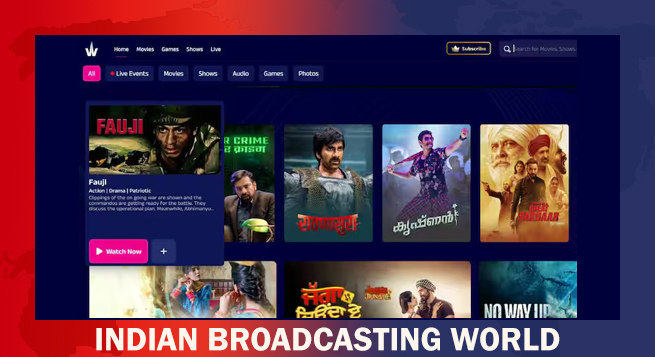 Govt. says pvt. sector TV channels can ride pubcaster’s WAVES
Govt. says pvt. sector TV channels can ride pubcaster’s WAVES 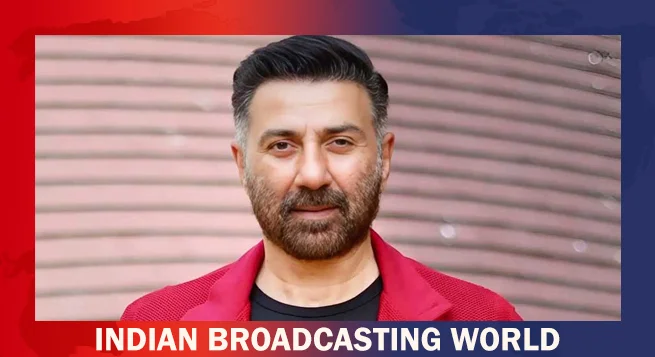 Sunny Deol says ready for fresh starts with streaming projects
Sunny Deol says ready for fresh starts with streaming projects 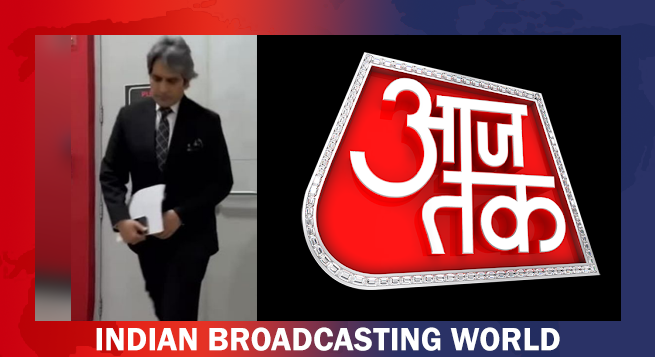 Sudhir Chaudhary steps down from Aaj Tak, begins new chapter with DD News
Sudhir Chaudhary steps down from Aaj Tak, begins new chapter with DD News 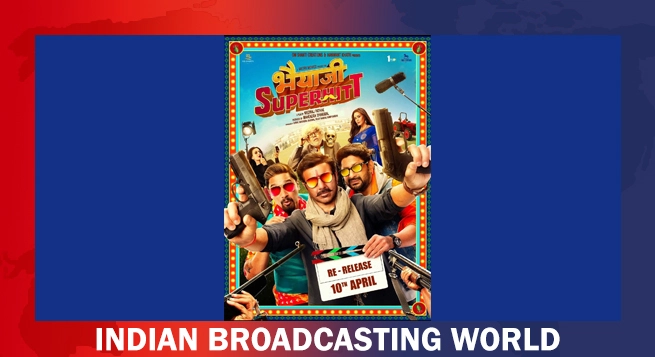 Sunny Deol-Arshad Warsi’s ‘Bhaiyaji Superhit’ set to re-release on April 10
Sunny Deol-Arshad Warsi’s ‘Bhaiyaji Superhit’ set to re-release on April 10  Sun Pictures to produce Allu Arjun’s next big film with Atlee
Sun Pictures to produce Allu Arjun’s next big film with Atlee 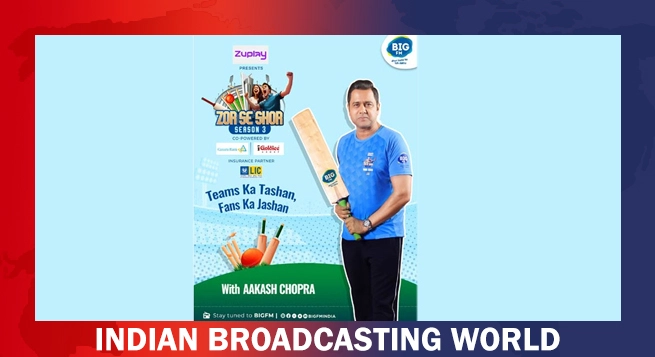 Aakash Chopra joins S3 of BIG FM’s ‘Zor Se Shor’
Aakash Chopra joins S3 of BIG FM’s ‘Zor Se Shor’ 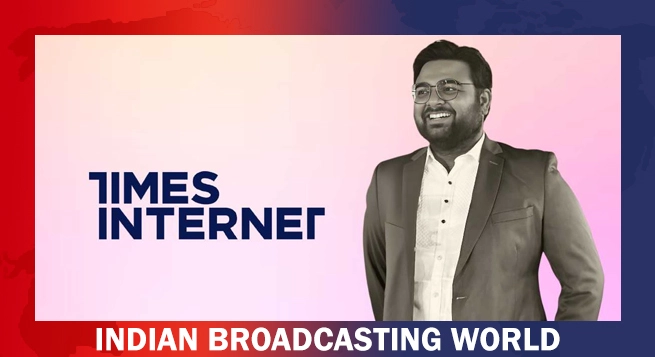 Times Internet names Johney Maheshwari as head of corporate development
Times Internet names Johney Maheshwari as head of corporate development 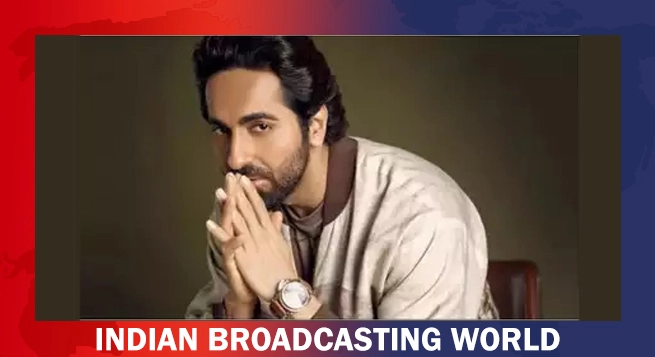 ‘Vicky Donor’ set to re-release on April 18
‘Vicky Donor’ set to re-release on April 18 


